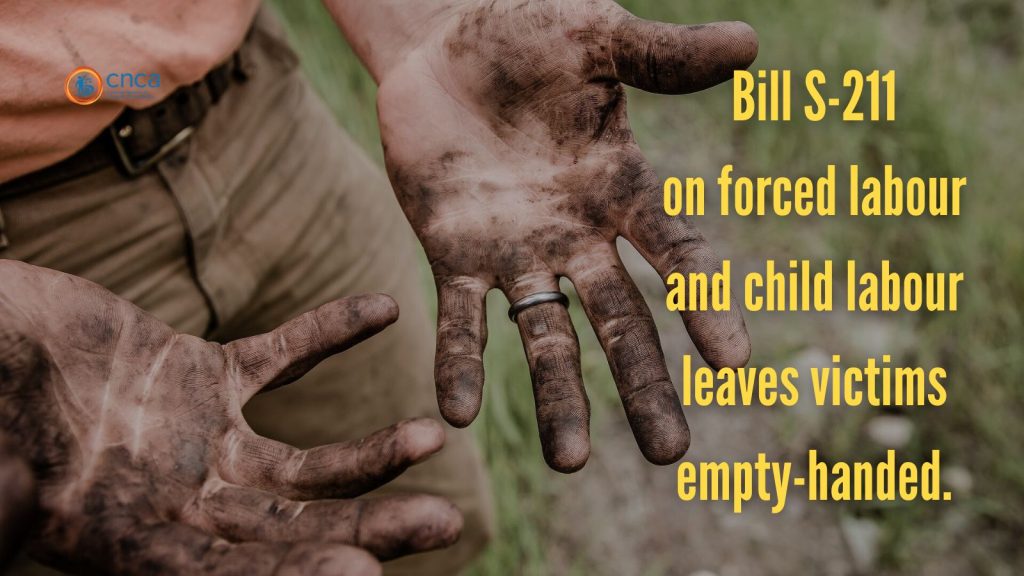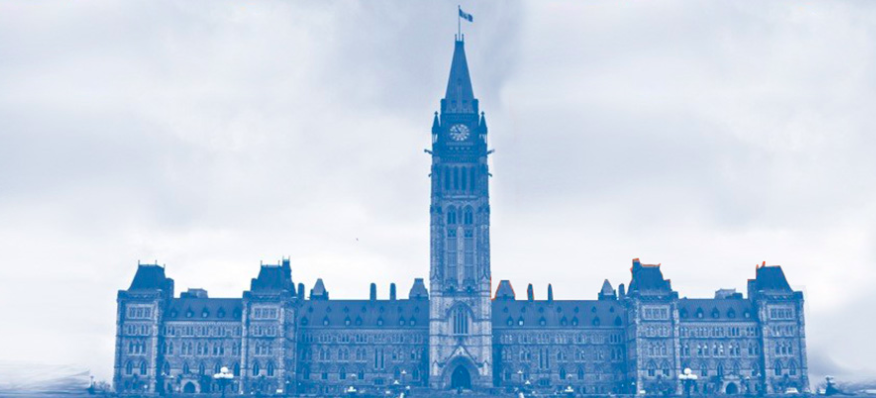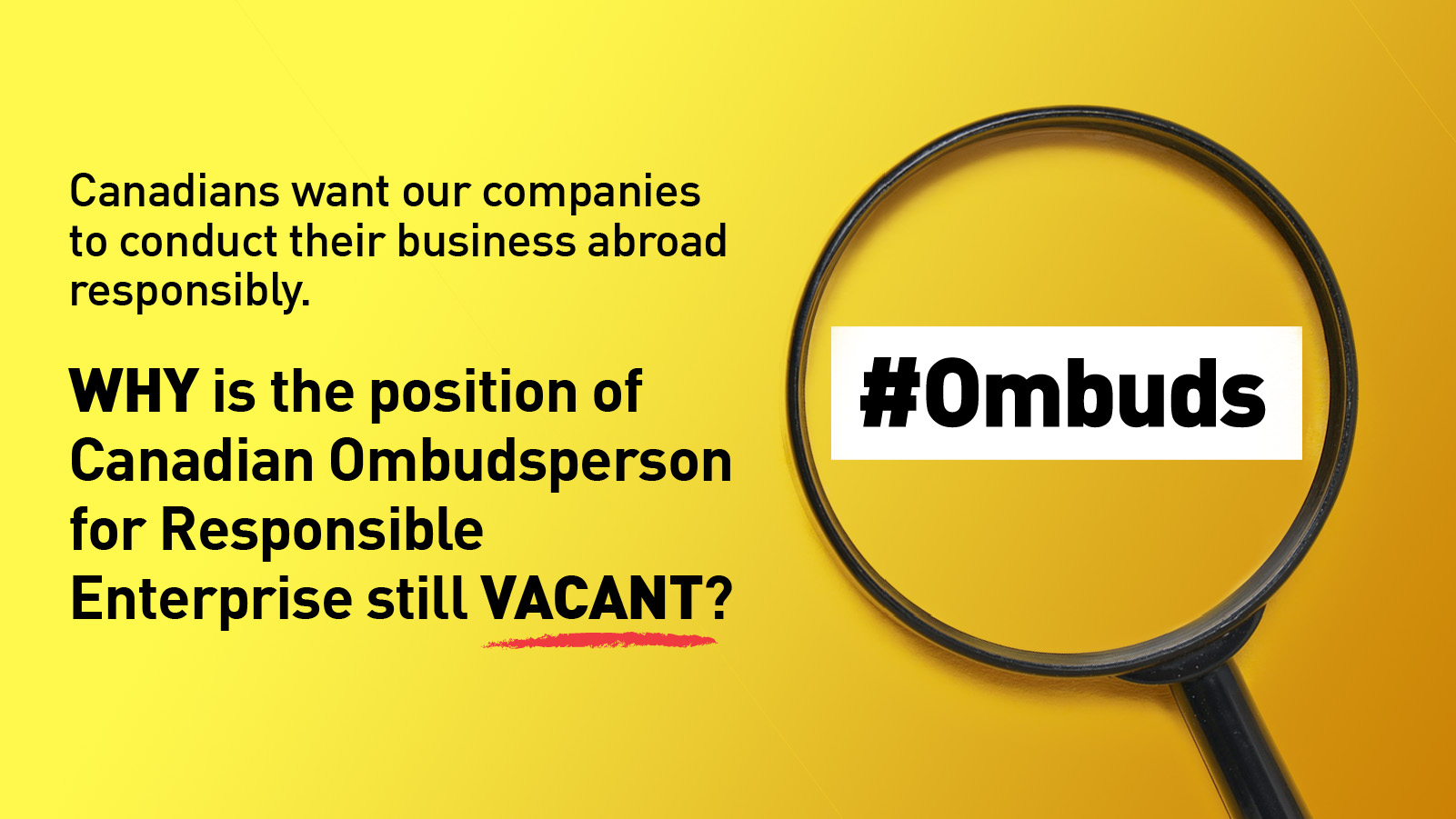The proposed Fighting Against Forced Labour and Child Labour in Supply Chains Act (Bill S-211) was debated in the Canadian Parliament on April 25th for the last time. On May 3rd, MPs will vote on whether to pass it or not.
The Canadian Network on Corporate Accountability (CNCA) urges all federal MPs to vote against Bill S-211 at third reading for several key reasons:
- It will not require companies to do anything about any human rights abuse in any part of their supply chains or global operations. Companies are only required to report on what they have done – even if they have done nothing at all – to prevent human rights abuse or environmental damage.
- It will not provide people who are harmed by Canadian companies, or their subsidiaries, or their suppliers, access to remedy for the abuse they have suffered, such as by bringing their grievances to Canadian courts.
- It makes it look like the government is taking real action on human rights when it is not. This could delay progress towards a law that actually addresses the serious human rights violations linked to Canadian-based companies and their global operations, including murder, rape, intimidation and environmental destruction. In other countries that have adopted laws like S-211, progress towards effective laws has stalled.
- The prescriptions of this bill do not meet Canada’s obligations to protect human rights, nor do they exemplify the UN Guiding Principles on Business and Human Rights.
- Ultimately, Bill S-211 will leave victims empty-handed.
Experts disagree with proponents of Bill S-211
No meaningful requirements
Good practice in addressing modern slavery includes ensuring access to justice and remedies when harms occur, through legislative, administrative, judicial and other means, states a report by the UN Special Rapporteur on contemporary forms of slavery, Tomoya Obokata.
Proponents of Bill S-211 have argued that it would require a company to “annually examine its supply chain and satisfy itself that there is no slavery in the supply chain… and a CEO will have to sign a statement to that effect with the same impact that it would if you signed a false statement for an accountant.”
However with S-211, companies can “satisfy their obligations under the bill by simply reporting that they have taken no action whatsoever to mitigate or prevent human rights abuses,” as the Senate was told by the Director of the International Justice and Human Rights Clinic at UBC’s Peter A. Allard School of Law, Nicole Barret.
And, as human rights and legal expert Penelope Simons at the University of Ottawa explains:
- There is no requirement to examine the supply chain and to ensure there is no forced labour.
- There is no statement “to that effect” that the CEO will have to sign. The CEO only needs to disclose any steps taken or processes in place to address or remediate forced labour in the supply chain… if any.
Understandably, the Executive Director of the Uyghur Rights Advocacy Project, Mehmet Tohti, urged all MPs to vote against S-211, calling it a “lip service Bill” that was “born dead and ineffective.”
Modelled on ineffective laws in the UK and Australia
Bill S-211 is modelled on similar laws in the UK and Australia. But recent studies show these laws have failed to incentivize companies (and their managers) to take action to address the risks of forced labour and child labour in their supply chains.
Instead, a report by the Business & Human Rights Resource Centre noted that the UK’s Modern Slavery Act:
- has failed in its stated intentions;
- has not resulted in informative disclosure from most companies;
- has not driven significant improvement in corporate practice to eliminate modern slavery because it does not place any legally binding standards on companies to undertake efforts to effectively address risks of labour exploitation in their business operations.
Meanwhile, the Australian study showed that companies regularly:
- engaged in superficial reporting;
- failed to address the mandatory reporting criteria;
- failed to identify and disclose salient sectoral risks in their operations and supply chains;
- were unable to prove that they were taking some form of action against modern slavery risks that would lift supplier working conditions or tackle root causes.
Proponents of S-211 have claimed that the bill improves on the UK and Australia model by including “fines and direct criminal liability for noncompliance.”
However, Professor Penelope Simons highlights that:
- while companies can be fined for providing misleading or false information, the information they are required to provide is not whether there is forced or child labour in the supply chain… The information they must provide is simply about policies in place and steps, if any, the company has taken to reduce the risk of forced labour.
- it is only if a company fails to report, to make the report public, or if it provides false or misleading information that it can incur a fine of up to $250,000.
Nothing compared to world-leading due diligence laws
Proponents of S-211 have called the bill “world-leading.”
However, the internationally recognized tool to prevent adverse impacts on human rights, including forced labour, is continuous practice of meaningful human rights due diligence, according to the former Chair of the UN’s working group on business and human rights, and current UN Special Rapporteur on the Right to Development, Surya Deva.
Reporting laws risk being “a form of window dressing in which reporting substitutes for remedial action,” notes legal scholar and LiUNA Chair of Global Labour Issues at McMaster University, Judy Fudge. “Simply requiring companies to report is not enough. It is time to make them act and require them to exercise due diligence in addressing the problem of child and forced labour…”
In fact, over 100 academics and legal experts have called on Canada to make human rights and environmental due diligence mandatory.
In March, the UN Special Rapporteur on the Rights of Indigenous Peoples called on Canada “to recognise its extraterritorial human rights obligations to ensure that Canadian transnational companies are held accountable for human rights violations committed abroad.”
The real world leaders are jurisdictions and countries, including France and Germany, which have adopted meaningful human rights and environmental due diligence laws.
Last week, a 43,000-signature petition was delivered to Canadian MPs in Ottawa, demanding that Canada pass mandatory human rights and environmental due diligence legislation.
The CNCA has developed model due diligence legislation, which was:
- endorsed by 200+ organizations and unions from Canada and around the world, 150 of whom represent directly impacted people;
- the inspiration for private members Bill C-262, An Act respecting the corporate responsibility to prevent, address and remedy adverse impacts on human rights occurring in relation to business activities conducted abroad.
The government could pass it or similar legislation at any time.
Therefore, MPs who are serious about making Canada a world leader when it comes to protecting human rights, including but not limited to forced and child labour, should vote against a bill like S-211 that experts say won’t work, and support real, effective, mandatory human rights and environmental due diligence legislation.




